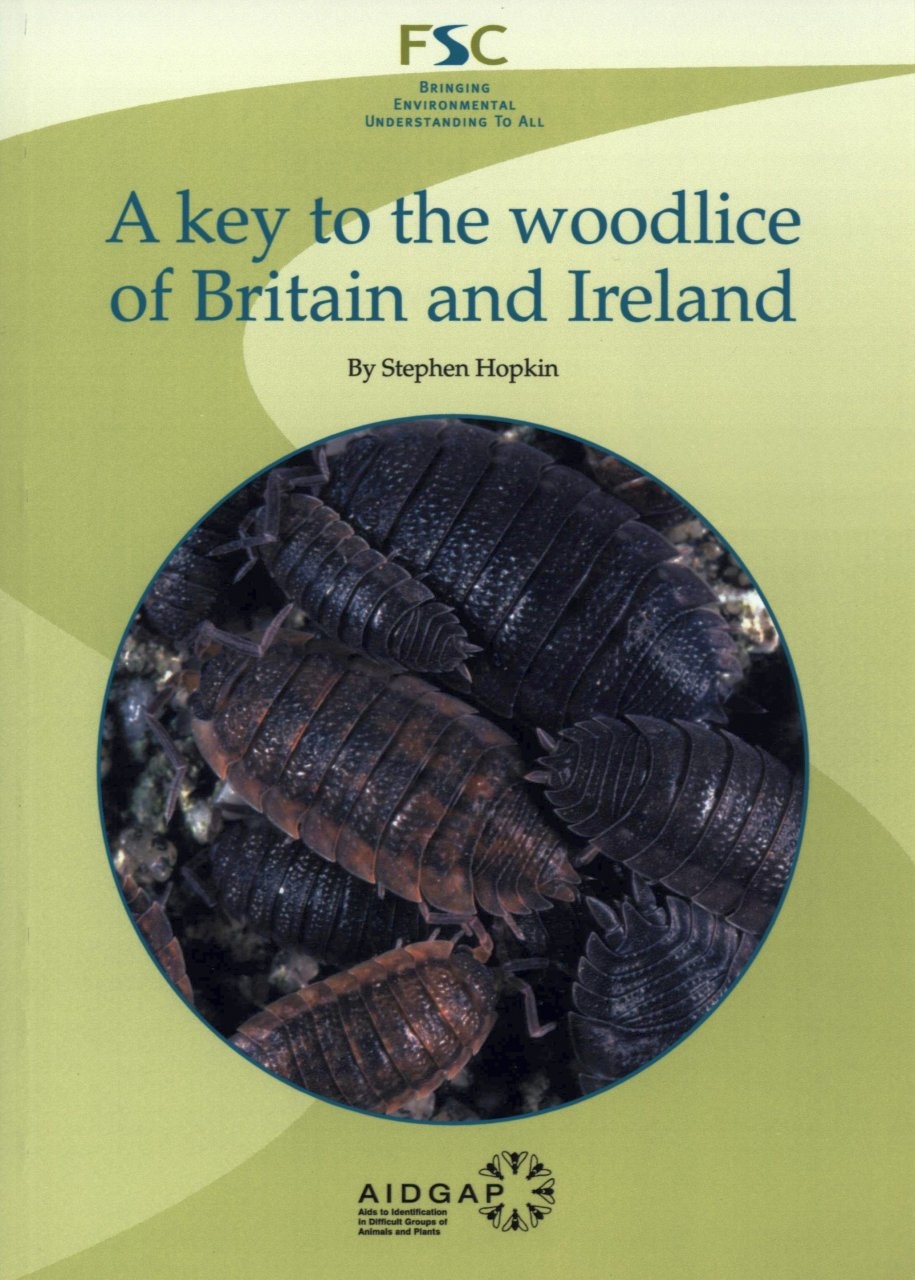| Series | Field Studies Council AIDGAP Guides |
| Author | Stephen Hopkin |
| Language | English |
| ISBN | 9781851532049 |
| Publisher | Field Studies Council Publications |
| Pages | 52 |
| Format | Paperback |
| Images | Colour images and illustrations |
| Year published | 1991 |
FSC Woodlice AIDGAP is an identification guide to the 35 species of woodlice that breed outdoors in Britain and Ireland.
Illustrated throughout with line drawings plus 16 colour plates. Also included are species descriptions, covering distribution and natural history.
Woodlice are among the most familiar of animals. The beneficial effects of these crustaceans far outweigh any damage that they do. However, woodlice have an ill-deserved reputation as pests, mainly because they wander into houses at night. In the garden, woodlice rarely attack living plants. Instead they prefer to eat vegetation which has begun to decompose. In glasshouses, woodlice may occasionally nibble seedlings, but they rarely do any significant economic damage. Moreover in the leaf litter of deciduous woods, and on compost heaps, woodlice perform a vital role. They chew dead plants into small fragments, and deposit these as faecal pellets which decompose rapidly. Thus the feeding activities of woodlice speed up the decomposition process and help return essential nutrients to the soil.
This guide is part of the FSC’s AIDGAP series (Aids to Identification in Difficult Groups of Animals and Plants). Our AIDGAP guides are accessible identification keys, suitable for non-specialists from age 16+. As with all guides in the series, the Woodlice AIDGAP underwent extensive testing before publication, by beginners and specialists alike. The author has revised the key in the light of the testers’ experience.
Accurate identification of specimens is an important part of biological fieldwork. Since 1976, the AIDGAP project has published over 40 straightforward and clearly written identification keys to many different groups of plants, animals and other taxa. In many cases the AIDGAP volume is the only non-technical work covering the group.








